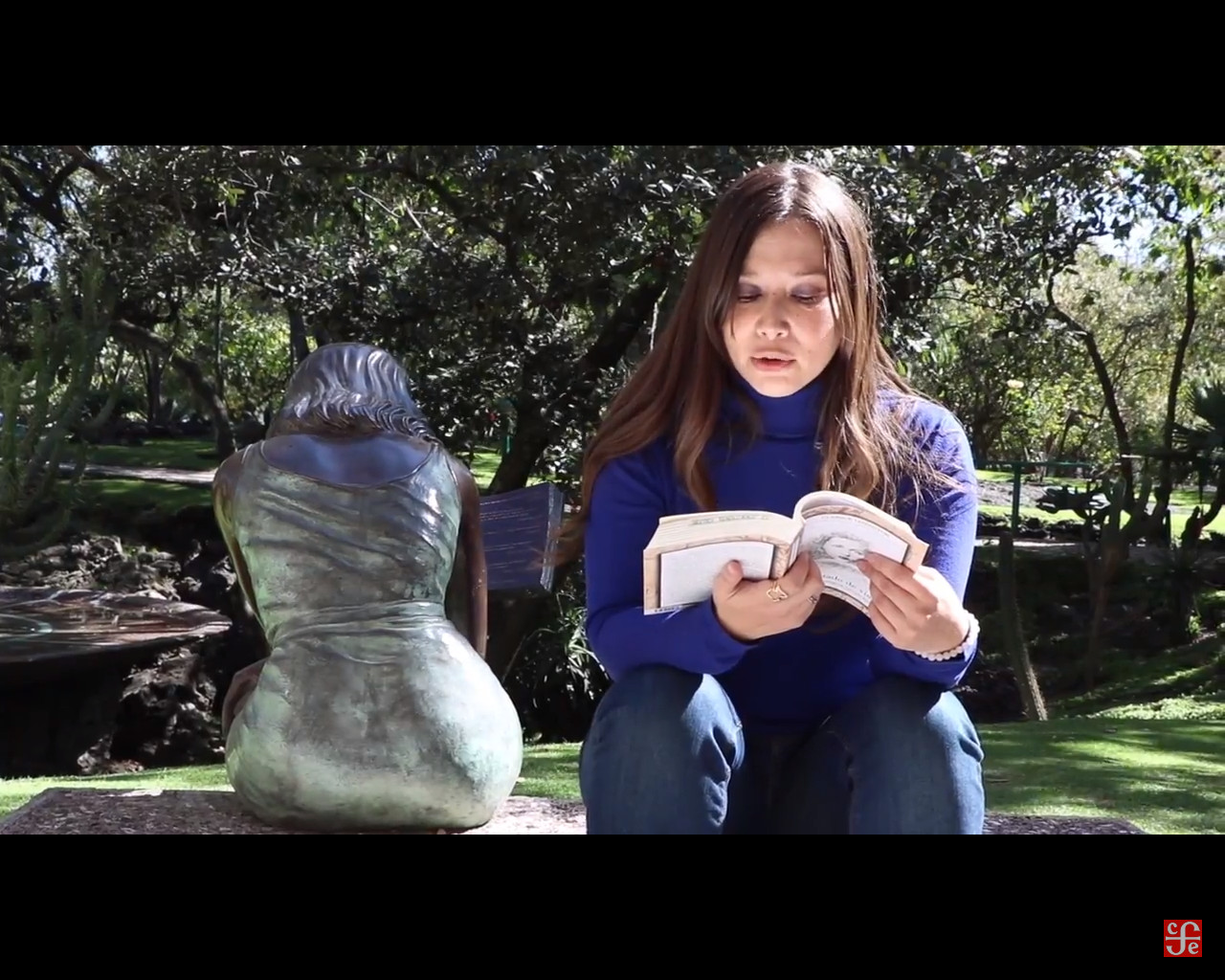, Clarice in Mexico. IMS Clarice Lispector, 2017. Disponível em: https://site.claricelispector.ims.com.br/en/2017/12/13/clarice-no-mexico/. Acesso em: 27 July 2024.
Clarice Lispector’s birthday was last Sunday, December 10th, but the Clarice’s Hour celebrations continue in Brazil and abroad. In Mexico, the Fondo de Cultura Económica celebrated the date with a presentation of En estado de viaje (published by the FCE in 2017), an assemblage of texts from the period when the author was abroad (between 1944 and 1959). Check out excerpts from the reading in the video, with the participation of Tálata Rodriguez.
See also
 by Bruno Cosentino
by Bruno Cosentino
The traditional Parisian bookstore Shakespeare and Company placed on special display the English version of the book The Complete Stories, by Clarice Lispector.
 by Equipe IMS
by Equipe IMS
Clarice Lispector spent her childhood in Recife, but at the age of 15 she moved with her father and two sisters to Rio de Janeiro. It was in the then capital of Brazil that the writer lived her youth and early adult life: she completed high school, graduated from law school, had her first professional experiences in the press, got married, and in 1943, released her first book Near to the Wild Heart.
 by Cicero Cunha Bezerra
by Cicero Cunha Bezerra
Michel de Certeau, in his La fable mystique, addresses an important aspect in the relation between idiocy and holiness in the first centuries, particularly in Christian literature, namely: a mode of isolation in the crowd. Idiocy, in the form of madness, is attributed to the crowd, and additionally, is established as a provocation, a transgression in the field of the “right-minded.”
 by Elizama Almeida
by Elizama Almeida
The LPs that belonged to Clarice help us get to know a little about her musical taste.
 by Augusto Ferraz
by Augusto Ferraz
I died. I found out when, one day, on the sidewalk of Praça Maciel Pinheiro, I lifted my head, opened my eyes, and saw myself dead, there on the plaza’s sidewalk, the two-story house on the other side of the street. My broken heart inside my chest, the two-story house on Rua do Aragão, 387, where, on the second floor, Clarice Lispector lived a happy childhood here in Recife, despite the pains of the world and experiencing and feeling, mainly, the pains of an implacable disease that would one day take Mania, her mother, away from her. I found out when, laid out on the sidewalk there under the scorching Sunday sun, I turned my head to the right and saw a man beside me, who was also looking at the house.
 by Paulo Gurgel Valente
by Paulo Gurgel Valente
I believe that Clarice and I shared a common feeling: objects are not inanimate, on the contrary, they have a secret life. I do not know if the reader has already tried turning off the lights at night in your room and, little by little, noticed that your eyes adapt to the dark and finally you can perceive the living presence of things.







